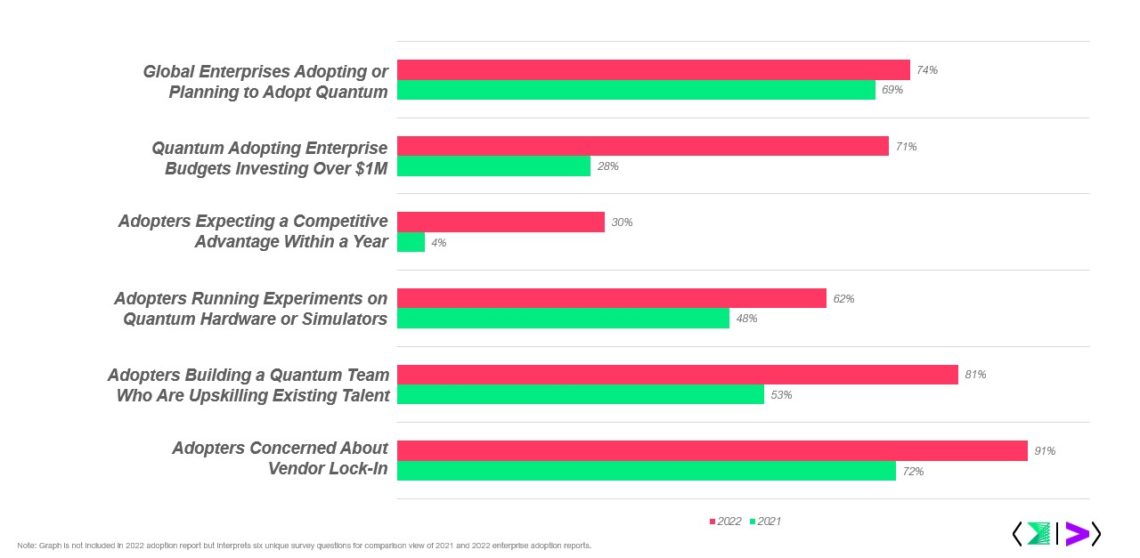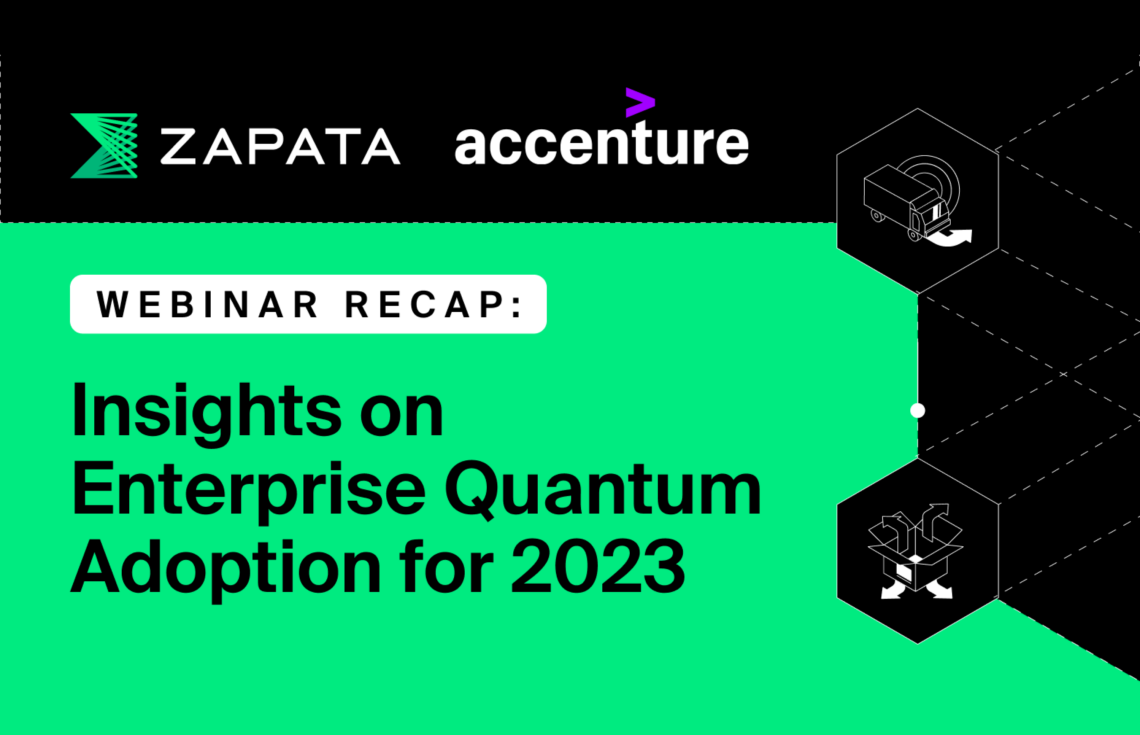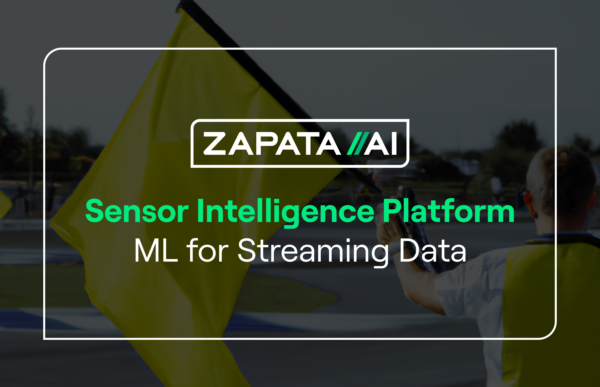ICYMI: Our Enterprise Quantum Adoption Webinar with Accenture
Last week, I co-hosted a webinar with Shreyas Ramesh, the Global Lead for Accenture’s quantum computing group, to review the findings in our Second Annual Report on Enterprise Quantum Computing Adoption and discuss data that can strengthen the case for quantum adoption in your own enterprise. If you missed it, this blog post is for you.
Our hour-long discussion took a closer look at the survey data we collected from 300 global enterprise leaders to answer some key questions:
- How many enterprises are adopting quantum computing?
- What are the earliest adopters doing to get ahead?
- What is the average enterprise quantum computing budget?
- How does their adoption relate to work in AI and Machine Learning?
And much more.
Watch the full webinar recording below or read on for some of the key findings.
How are Enterprises Adopting Quantum Computing in 2023?
Our survey found substantial momentum for quantum computing adoption, with growth in several key metrics since last year’s survey pointing to a deepening commitment to quantum.

The survey was an unbiased snapshot of quantum adoption: we commissioned an independent research firm, Wakefield Research, to survey 300 enterprise decision-makers (VP-level and above) at large global enterprises, with estimated revenues exceeding $250 million USD and with estimated computing budgets over $1 million. Respondents came from 12 different industries, with 100 respondents each from North America, EMEA and APAC.
Below are the top 5 findings from the report:
74% of global enterprises are adopting or planning to adopt quantum
33% of enterprises are already in the early or advanced stages of quantum adoption. The manufacturing sector saw the highest rates of adoption, with 62% in the early stages of adoption. This may be attributable to near-term opportunities in supply chain and manufacturing process optimization using quantum-inspired methods running on classical hardware.
71% of quantum budgets top $1M
This was one of the largest changes we saw from last year, up over 2.5X from the previous year. Investments are scaling beyond the small R&D budgets of the past as enterprises. Budgets were even higher among the most advanced adopters, 64% of whom reported investing $2M or more. This funding will be critical to building quantum teams, upgrading infrastructure, and building pilots and applications – even before mature hardware arrives.
30% of adopters expect a competitive advantage this year
…while 6% are already claiming some kind of advantage over their competition. It’s unclear what this advantage entails, but given the nascent stage of the technology, it likely includes some combination of building applications and infrastructure, building a quantum team — a crucial advantage given the limited talent pool — and locking up IP. There is also potential for near-term advantage in machine learning or optimization use cases, which could include quantum techniques running on classical hardware.
Quantum adoption outpaces AI adoption
A new question in this year’s survey found that 49% of global respondents were adopting quantum computing at a faster pace than they had previously adopted AI. This could be due to the exponential future benefits that enterprises expect from quantum computing, or that enterprises are learning from their difficulties in adopting AI. The faster pace could also be explained by the fact that AI adoption set a foundation for quantum to build on and enhance, as most near-term quantum use cases will be in AI.
Machine learning is the top quantum use case
Enterprise adopters cited machine learning and analytics as their top use case — and for good reason. We believe AI, and specifically generative AI, is likely to be the first place we see a practical quantum advantage. One generative AI example is Zapata’s generator-enhanced optimization (GEO) approach, which uses generative AI and quantum-inspired models to enhance classical optimization solvers. For more details, see our new white paper: The Near-term Promise of Quantum Generative AI.



